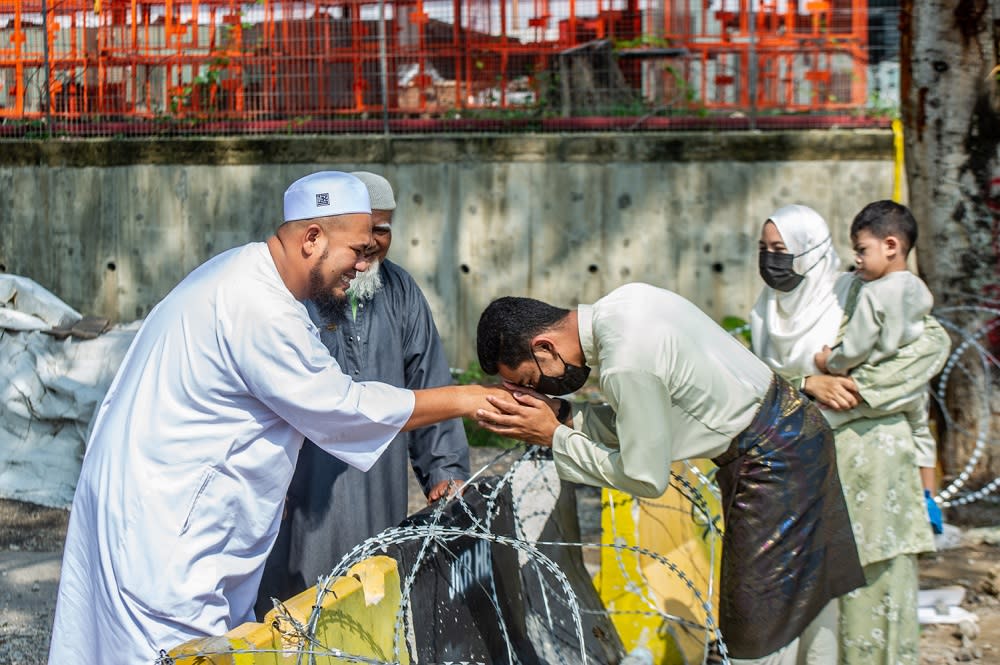Putrajaya: This Aidilfitri, feel free to ‘salam’ during Raya visits but don’t forget to wash hands frequently

KUALA LUMPUR, April 27 — The Ministry of Health today released its latest recommendations for Aidilfitri celebrations this year amid Covid-19, which now no longer restricts the practice of “salam” which includes shaking and kissing an elder’s hands as a means of respect and asking for forgiveness.
Health Minister Khairy Jamaluddin said that although the ministry no longer advises against it, those celebrating should continue to wash their hands frequently and refrain from touching their face afterwards to prevent the spread of Covid-19.
“Indoor open houses are allowed with the condition that face masks are worn outdoor open houses are also allowed where the wearing of masks is recommended,” he said.
For all Hari Raya activities, those who are Covid-19 positive are banned from attending, while those with symptoms of the disease are recommended against attending.
Aside from home visits, grave visits have also been allowed with the wearing of face masks recommended.
Aidilfitri prayers on the morning of the day have also been allowed at 100 per cent capacity in mosques and surau, although attendees are advised to perform their ablutions at home and bring their own prayer mats.
Khairy also asked them to enter and leave the prayer area in an orderly fashion.
“After-prayer feasts are also allowed at mosques and surau, but those attending are recommended to wear their face masks when not eating or drinking.
“Takbir Hari Raya is allowed in mosques and surau. It is also allowed from home to home but attendees must always wear face masks,” he said, referring to the practice of reciting praise to Allah during the eve and morning of Aidilfitri.
In Malaysia, a traditional Malay ritual called “marhaban” has revellers visiting from home to home reciting “takbir” and other Quranic verses worshipping God, commonly in villages or closed-knit communities.
Aidilfitri is expected to fall on May 3 this year with May 4 an additional public holiday, bringing an end to the fasting month of Ramadan observed by Muslims worldwide.
Related Articles Malaysian Vape Industry Advocacy says cigarettes and vape not equal, unfair to ban us Health Ministry vows to shift focus to non-communicable diseases as Covid-19 lets up Khairy: After PICKids ends May 15, Covid-19 vaccinations for children will no longer be free



